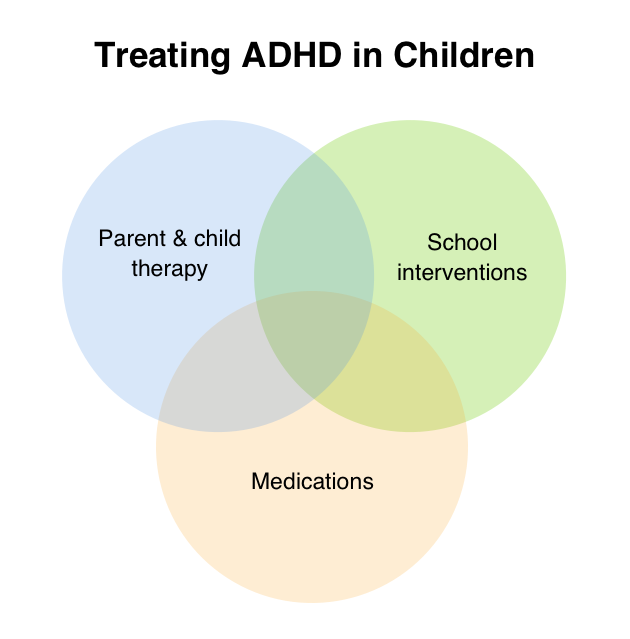Telehealth Psychiatrist Consultations for Convenient Care
Telehealth Psychiatrist Consultations for Convenient Care
Blog Article
The Advantages of Customized ADHD Treatment Strategies for Better Results
The application of individualized ADHD treatment plans has emerged as an essential approach in improving healing outcomes for individuals influenced by this problem (ADHD treatment). By acknowledging the special symptoms of ADHD in each person, these customized treatments promote better interaction and motivation, eventually leading to much more effective coping methods.
Comprehending ADHD Irregularity
Although Attention-Deficit/Hyperactivity Disorder (ADHD) is frequently regarded as a single problem, its manifestations can differ considerably amongst people. This variability is affected by a series of elements, consisting of age, gender, coexisting problems, and ecological contexts. As an example, children with ADHD may show hyper actions, while grownups may mainly fight with attention shortages. Sex distinctions additionally contribute, as males are much more regularly detected with ADHD and often show extra obvious symptoms, whereas ladies may present with much less evident inattentiveness.
Additionally, individuals with ADHD might experience a range of emotional and behavior difficulties, such as stress and anxiety or oppositional defiance, that can complicate medical diagnosis and therapy. The interaction of these variables can result in varied experiences of ADHD, requiring a nuanced understanding of the condition. It is additionally worth noting that ADHD can present in a different way throughout numerous social contexts, affecting exactly how signs and symptoms are acknowledged and attended to. This understanding emphasizes the significance of recognizing ADHD as a complex condition, which requires personalized approaches to treatment that think about the one-of-a-kind requirements and experiences of each individual.
Key Parts of Personalization
Personalized ADHD therapy plans are based in numerous crucial components that guarantee reliable monitoring of the problem. Initially, a detailed assessment is vital, including standardized rating scales, interviews, and behavioral observations. This detailed assessment allows clinicians to understand the individual's special symptoms, staminas, and obstacles.
Second, the involvement of numerous stakeholders, including moms and dads, instructors, and the individual, adds to an alternative view of the person's demands. Partnership cultivates an encouraging setting that can adjust to the person's context and lifestyle.
Third, therapy strategies must be flexible and versatile, enabling modifications based upon ongoing comments and the individual's developing needs. This adaptability allows the integration of various healing approaches, such as behavioral interventions, psychoeducation, and medication management.
Furthermore, cultural and contextual factors need to be thought about. Identifying the individual's background, worths, and choices makes sure that the therapy is appropriate and considerate.
Last but not least, routine follow-ups and assessments are important to check progress and make required changes. By focusing on these key elements, individualized ADHD therapy strategies can dramatically boost the efficiency of interventions, bring about boosted end results for individuals with ADHD.
Enhanced Interaction and Inspiration
To efficiently promote enhanced involvement and motivation in individuals with ADHD, it is essential to incorporate strategies that reverberate with their interests and toughness. Individualized treatment strategies that align with a person's interests can lead to enhanced engagement in healing tasks, promoting a sense of ownership and enthusiasm for the process.
Using interactive and creative methods can also substantially boost inspiration. As an example, integrating gamification aspects or real-world applications of abilities can make tasks more attractive and relevant. This not only records interest yet additionally reinforces go to my site discovering via pleasurable experiences.
Moreover, setting achievable and purposeful objectives tailored to the person can strengthen motivation. When individuals see their progression in the direction of personally substantial goals, they are much more likely to continue to be involved. Routine responses and recognition of success can better endure motivation, producing a positive comments loophole that urges continued initiative.
Finally, cultivating an encouraging environment where people feel comprehended and valued can dramatically affect their engagement degrees. When therapy plans are developed collaboratively, incorporating input from the person, they are extra likely to really feel invested in their trip, ultimately leading to improved results in handling ADHD.
Improved Coping Methods
Developing boosted coping strategies is vital for individuals with ADHD, as it outfits them with efficient devices to navigate daily difficulties. A tailored treatment plan enables for the identification of specific coping devices customized to the person's one-of-a-kind needs and circumstances - ADHD treatment. Strategies such as mindfulness, time monitoring skills, and business methods can be integrated into day-to-day regimens, fostering a sense of control and minimizing anxiety
Mindfulness methods, consisting of reflection and deep-breathing workouts, assistance people with ADHD concentrate their focus and manage their emotions. Time administration approaches, such as utilizing timers or breaking jobs into smaller sized, workable steps, can alleviate feelings of overwhelm. Furthermore, business tools like organizers and checklists can boost efficiency and accountability.
Long-term Favorable End Results
Carrying out tailored ADHD therapy strategies can lead to substantial long-lasting positive outcomes for people. These customized techniques, which take into consideration one-of-a-kind symptoms, preferences, and life conditions, help with much more efficient management of ADHD signs over time. By concentrating on the specific needs of the individual, these strategies improve adherence to treatment methods and foster better interaction in restorative activities.

Moreover, individualized therapy plans can dramatically lower the danger of comorbid problems, such as stress and anxiety and clinical depression, which are often related to ADHD. Early treatment and constant support help individuals develop resilience and coping approaches, advertising total psychological wellness.
Ultimately, the long-term positive outcomes of individualized ADHD therapy plans not just boost the quality of life for people however additionally add to their total health and success in various life domain names. This holistic approach emphasizes the relevance of personalized treatment in taking care of ADHD successfully.
Conclusion
:max_bytes(150000):strip_icc()/adhd-treatment-4157278_FINAL-848b0cfc4d0b42a0b66c3d2ca894e9dd.png)
Report this page